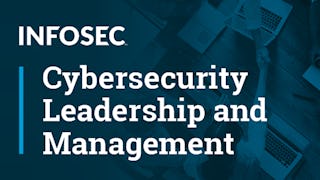Welcome to the Law, Governance, and Public Policy course! This foundational course introduces you to the concepts of democracy, governance, state, and the law and their relationships with public policy. By the end of this course, you will acquaint with various processes and institutions involved in framing and enforcing the law and implementing public policies.



Was Sie lernen werden
Define the foundations of governance, law, and public policy and describe their interrelationships.
Explain the formulation and reformulation of policies and laws.
Analyze the global and political forces that impact rules and policies.
Examine the different conceptions of governance, governance reforms, and democratic governance.
Kompetenzen, die Sie erwerben
- Kategorie: Policy Analysis
- Kategorie: Economics
- Kategorie: Social Justice
- Kategorie: Public Administration
- Kategorie: Public Policies
- Kategorie: International Relations
- Kategorie: Political Sciences
- Kategorie: Governance
- Kategorie: Law, Regulation, and Compliance
- Kategorie: Economics, Policy, and Social Studies
Wichtige Details
2 Quizzes, 23 Aufgaben
Erfahren Sie, wie Mitarbeiter führender Unternehmen gefragte Kompetenzen erwerben.

In diesem Kurs gibt es 8 Module
In this module, you will examine democracy as one form of governance. It discusses the significance of democracy for development policies. It explores public policy outcomes in democracies vis-à-vis nondemocratic systems of governance. You will find answers to questions, such as: Is democracy good for development? Does democracy have different public policy outcomes than nondemocracy? Should we judge democracy as an institution with results? If yes, what are those outcomes?
Das ist alles enthalten
8 Videos6 Lektüren2 Quizzes2 Aufgaben
This module introduces you to different kinds of governance and governance reforms. It discusses how to assess the quality of governance. You will learn about different theoretical conceptions of governance and theoretical approaches to study governance, including rational choice and collective choice, new institutionalism, policy networks, and policy instruments.
Das ist alles enthalten
8 Videos3 Lektüren4 Aufgaben1 Diskussionsthema
This module focuses on state capacity and the state’s role in economic development. It examines various state forms, including the developmental state, predatory, regulatory, and corporatist state. Finally, you will examine the relationship between forms of state and types of democracy to understand democracy as a political practice for enhancing development.
Das ist alles enthalten
8 Videos4 Lektüren4 Aufgaben1 Diskussionsthema
In this module, you will learn about the importance of law for public policy following the discussion on state and governance. It begins with explaining why policies must conform to constitutional provisions and need the backing of law for enforcement. Further, it explains the rationale for separating powers between the executive, the legislature, and the judiciary. Finally, it elaborates on the centrality of the Rule of Law in constitutional democracies.
Das ist alles enthalten
8 Videos4 Lektüren3 Aufgaben1 Diskussionsthema
This module discusses the liberal utilitarian idea of justice. You will analyze alternative nonutilitarian ideas of justice proposed by John Rawls and Michael Sandel, followed by Amartya Sen’s attempt to revive a utilitarian conception of justice. It further discusses the legal systems in constitutional democracies based on justice. Finally, it examines how judicial review empowers the superior courts to interpret laws to do complete justice.
Das ist alles enthalten
8 Videos3 Lektüren3 Aufgaben1 Diskussionsthema
In this module, you will learn about the issues and problems that the state takes up and addresses through policy, the role that law plays in enforcing policies, and how law serves as an instrument of political power. The module explains the policy cycle by first identifying a problem or issue and then evaluating the policy chosen to address it, leading to policy modification. You will also examine how power plays a role in bringing some items into the policy agenda, keeping other things out, and persuading people to think about adversity as a virtue.
Das ist alles enthalten
7 Videos4 Lektüren3 Aufgaben1 Diskussionsthema
This module deals with the global impacts on national and local governance. You will learn how norms and provisions in international treaties shape national policies and laws. You will analyze why it is no longer possible for sovereign states to make policies independently of requirements of international institutions such as the World Bank, International Monetary Fund, the World Trade Organization and commitments given to the United Nations to realize the Sustainable Development Goals. You will also learn why national policies must focus on the imperatives of globalization.
Das ist alles enthalten
7 Videos4 Lektüren3 Aufgaben
This module describes the learning objectives, project brief, review criteria, grading criteria, and submission instructions for the Staff Graded Individual Assignment for the course.
Das ist alles enthalten
2 Videos2 Lektüren1 Aufgabe
Dozent

Mehr von Governance and Society entdecken

O.P. Jindal Global University

University of London

Infosec

University of Michigan
Warum entscheiden sich Menschen für Coursera für ihre Karriere?





Neue Karrieremöglichkeiten mit Coursera Plus
Unbegrenzter Zugang zu 10,000+ Weltklasse-Kursen, praktischen Projekten und berufsqualifizierenden Zertifikatsprogrammen - alles in Ihrem Abonnement enthalten
Bringen Sie Ihre Karriere mit einem Online-Abschluss voran.
Erwerben Sie einen Abschluss von erstklassigen Universitäten – 100 % online
Schließen Sie sich mehr als 3.400 Unternehmen in aller Welt an, die sich für Coursera for Business entschieden haben.
Schulen Sie Ihre Mitarbeiter*innen, um sich in der digitalen Wirtschaft zu behaupten.
Häufig gestellte Fragen
Access to lectures and assignments depends on your type of enrollment. If you take a course in audit mode, you will be able to see most course materials for free. To access graded assignments and to earn a Certificate, you will need to purchase the Certificate experience, during or after your audit. If you don't see the audit option:
The course may not offer an audit option. You can try a Free Trial instead, or apply for Financial Aid.
The course may offer 'Full Course, No Certificate' instead. This option lets you see all course materials, submit required assessments, and get a final grade. This also means that you will not be able to purchase a Certificate experience.

